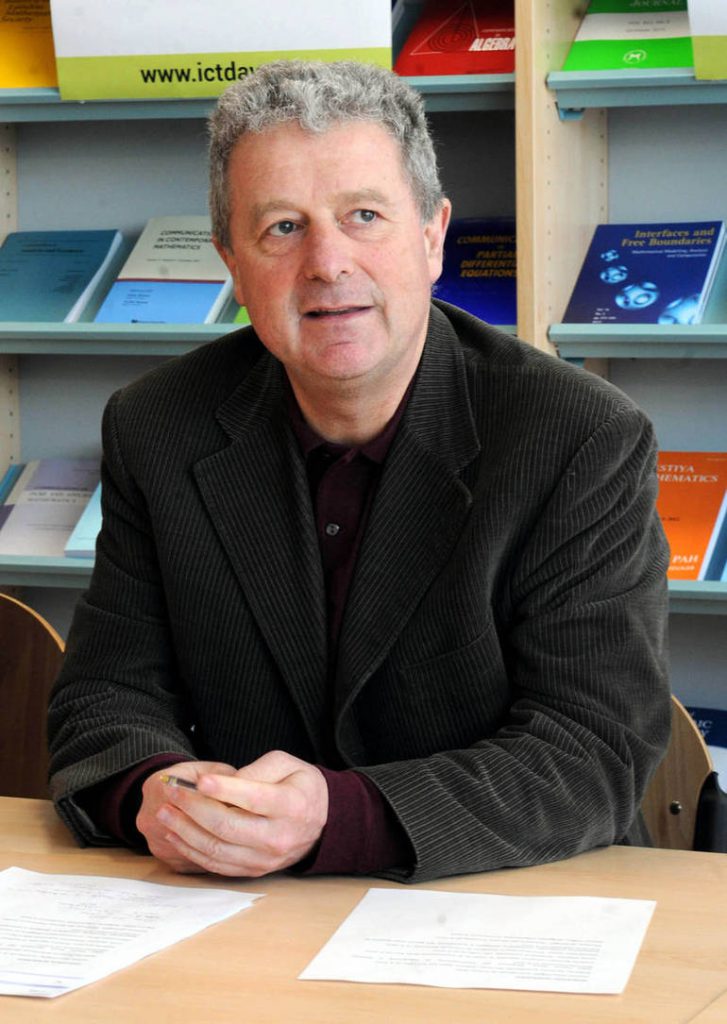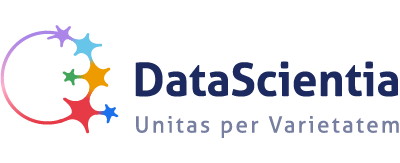
WITH DATA
The Datascientia Manifesto
- Data, as they are available on the Internet, is the fuel that is boosting the rise of a new, smarter society that we want to be open, inclusive and enabling a higher quality of life.
- Data should be available and reusable at affordable costs by everybody, regardless of gender, religion, nationality, level of wealth or any other contingent factor.
- Data should properly represent the diversity of the world, as it results from the local culture and traditions, needs and purpose. Data should be expressed in the local languages and should record those facts that are contextually relevant, with the format and values that are most appropriate.
- Languages and knowledge should absorb the diversity of data into progressively more unified representations of the world.
- Languages and knowledge and data should be developed thanks to the voluntary efforts of the interested parties, each operating in full autonomy.
- DataScientia is a non-profit organization aiming to support the emergence of a unitary understanding of the world as represented by data.
- DataScientia’s first aim is a technological infrastructure enabling person-centric and data-centric AI-enabled research and social innovation.
- DataScientia’s second aim is the organizational infrastructure, enabling the development and adoption of best practices.
- DataScientia’s third aim is the legal infrastructure, which deals, among other things, with issues related to licensing, privacy and ethics.
- DataScientia’s fourth aim is the social infrastructure, that is, a community centered around the understanding of data, their development and their exploitation, both social and economic.

DataScientia Structure
DataScientia is a non-profit organization whose goal is to build a more inclusive society with a higher quality of life, enabling social innovation supported by data-centric AI. DataScientia works in strict collaboration with its partner Universities. Universities support DataScientia in its lifelong educational programs, in the development and support of the local communities as well as in its research and innovation activities. DataScientia is a global organization with many local nodes which interact closely with the local universities and communities, and with one global node coordinating the activities of the local nodes. The global node provides the supporting infrastructure, as needed. It acts under the strategic guidelines defined by the governance. The local nodes participate in the governance of DataScientia.
How do we sustain ourselves?
DataScientia sustains itself based on the revenues generated by the technological and social innovation it enables, mainly focused on its own end-to-end data management process.
DataScientia has two primary sources of income.
- The first is providing services enabled by the data and technologies developed by DataScientia. Each type of data enables different data-specific services.
- The second is the support of the start-up and growth of highly innovative companies which take advantage of their own technology.
All DataScientia economic revenues must follow a process consistent with its internal ethical standards. Revenues must come from activities that generate meaningful social innovation.
What
What do we do?
DataScientia supports the collection, sharing and usage of person-centric data as a common good, in the interest of people and society at large. By person-centric data, we mean suitably anonymized personal data, data about the culture, milieu, and events around us, as well as the language(s) we speak and the knowledge that allows us to interpret and compose the data we collect.
Person-centric data will be used towards the generation and dissemination of knowledge concerning individuals, society, and the world, as perceived and articulated by people. We want to analyze and comprehend the variances in interpretation. The aim is to uncover the deeper unity that underlies diversity, allowing us to delve beneath surface differences.
Why do we do what we do?
We all create and use our own mental models of the world. Perception creates it, language allows us to share its description with other people, thus causing its objectivation, and knowledge is what we learn about it by observing what repeats itself through change, as described by language.
Our mental models are different from those of everybody else. The negotiation or conflict between frames of mind is part of the communication process and is inherent to any encounter among cultures and people. However, the Internet has exponentially increased the possibility of exposure to new people, speaking different languages, and holding different knowledge, cultures and traditions. On the one hand, this increased exposure to diversity provides us with an unprecedented wealth of opportunities for learning and innovating while, on the other hand, revealing our limited capability to harness such richness.
Learning about this process and how to bridge the gap between opportunities and difficulties is critical to sustainable AI innovation. We need to find a way to go beyond the current, only technology-driven, person, society and diversity-unaware approach to data-driven AI innovation.
Why
Our Mission
What do we hope to achieve?
We want to analyze and comprehend the variances in interpretation. The aim is to uncover the deeper unity that underlies diversity, allowing us to delve beneath surface differences. We want to enable a process where anybody can increase their awareness and active participation in the development of AI technological innovation. Technological innovation should be driven by social innovation, and citizens should proactively participate in the definition of the social innovation agenda.
Ethics and privacy
At DataScientia, our utmost priority is safeguarding our users’ privacy. Consequently, we have established the following policy to inform you about our handling of your personal information. This policy outlines the types of information we collect from you, how we use it, and the circumstances under which we may share it with third parties.
Please be aware that this policy exclusively pertains to DataScientia and does not apply to any other companies, organizations, or websites that we may link to. It’s important to note that these external entities may have significantly different privacy provisions from ours.
Therefore, we strongly recommend reviewing the privacy policy of any other website you visit, whether you access it through our site(s) or independently. This will help you understand their policies and how they collect, use, and share your personal information.
If you have any questions about our Privacy Policy, please don’t hesitate to contact us at community-support.datascientia.disi@unitn.it.









